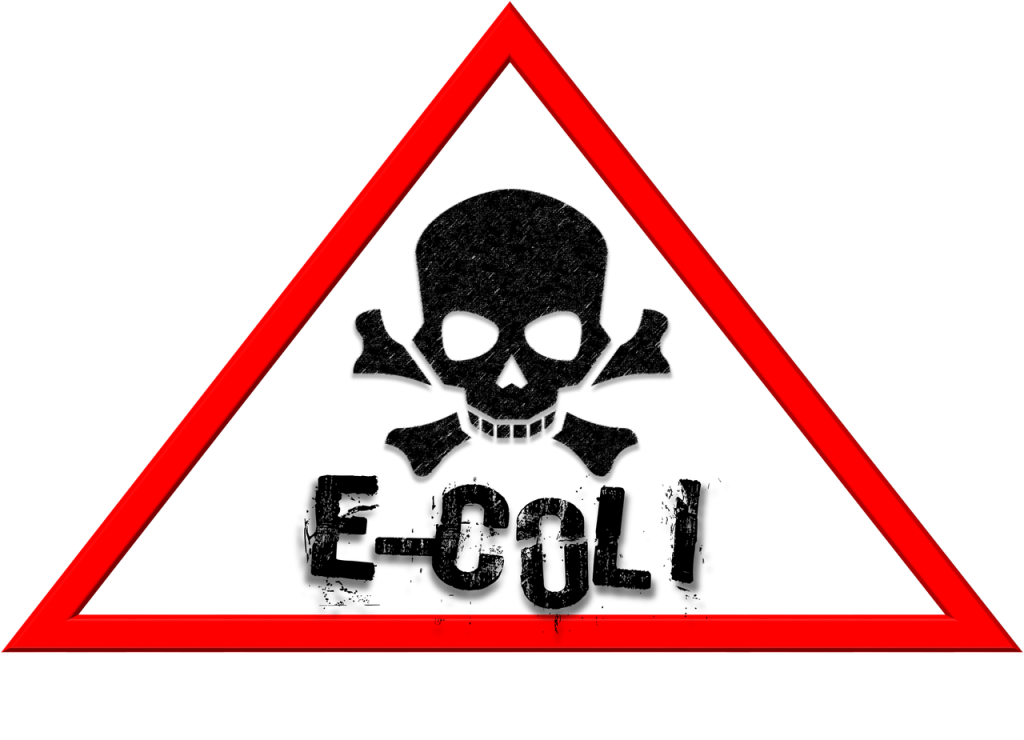All fields are required
Posted in E. coli,Outbreaks & Recalls on September 4, 2024

Last week, public health officials announced an uptick in local cases of E. coli in Josephine County Oregon. Little information is available, but the issue is serious enough to issue a public alert to help residents stay safe while they figure out what is going on.
Here is what we know about the recent cases of E. coli in Josephine County Oregon.
Josephine County Public Health announced an uptick in local cases of a Shiga toxin-producing E. coli in Josephine County on August 29, 2024.
The Department did not indicate the number of cases. However, it is likely more than two or three to garner attention. Single cases are often still investigated. But when a cluster of illnesses with the same strain of a pathogen pop up, it signals a much larger-scale issue.
Josephine County Public Health has indicated that the issue may be outside of local businesses and originate from something potentially larger.
“Experts are looking into the source of the infections and at this time do not believe the exposure is linked to any local business, park or recreational body of water.”
So, what could it be?
While not expressed, these cases may be linked to a nationally investigated FDA outbreak investigation. Just the day before this Josephine County Health Department announcement, the FDA announced a new outbreak of E. coli O157:H7 illnesses.
This E. coli O157:H7 strain is also a Shiga toxin-producing E. coli strain.
The FDA outbreak, announced on August 28, 2024, is so far linked to at least 25 illnesses.
Like many other outbreaks, this is probably a minimal representation of the true number of cases. It can take as long as four weeks from a sick person seeking medical treatment to updating into this announcement. Additionally, many illnesses go unreported because they are so mild that the individual opts to treat at home instead of seeking medical help and never tested for E. coli.
So far, this FDA outbreak investigation is still in the “initiated traceback” phase and no product has been identified as causing these illnesses.
The investigation is ongoing.
To help protect their community, Josephine County Health Department included recommendations in their public health alert. These recommendations not only help prevent E. coli infections, but other foodborne illnesses as well.
“JCPH experts recommend the following steps to help prevent E. coli infections:
E. coli bacteria can be found in many places. The environment, food, water, and the intestines of people and animals.
Most E. coli bacteria are a harmless part of our gut microbiome. Though some strains, such as Shiga toxin-producing E. coli like E. coli O157:H7 can be very dangerous. Even life-threatening.
Common sources of Shiga toxin-producing E. coli are:
Any food can be potentially contaminated. So prevention is key to help prevent infection.
Anyone can become sick if exposed to E. coli bacteria. However, some people are more likely to become sick if exposed and experience more serious illness if infected.
Children younger than five years-old, adults over 65 years-old, and those with a weakened immune system are more vulnerable.
E. coli causes a gastrointestinal illness with potentially serious, life-threatening complications.
The most common symptoms of E. coli infections include:
Call your doctor if you have diarrhea or vomiting that lasts for more than two days, have bloody poop or pee, fever higher than 102° F, signs of dehydration, or signs of hemolytic uremic syndrome.
Hemolytic uremic syndrome, or HUS, can be triggered by Shiga toxin-producing E. coli infections. The infection results in broken down blood cells that flog the filtering activities in the kidneys.
This can lead to kidney failure, permanent health problems, or even death.
Signs of HUS include:
About 5 to 10% of those infected with Shiga toxin-producing E. coli develop HUS.
People with HUS require hospitalization to monitor their kidneys and for other complications.
While most people recover within a few weeks with prompt medical care, others may suffer more permanent damage or even death from HUS related complications.
If you have symptoms consistent with an E. coli infection, you may be wondering what you can do to help.
Without a known cause, every person sick with this outbreak strain could be potentially holding a clue to the origins.
Even if your symptoms are mild, it is still a good idea to report your illness to your local health department. They may ask you questions about your symptoms, what and where you have eaten in the past few weeks, and other supporting information. So have that information handy.
If you have become seriously ill with an E. coli infection and wish to make a legal claim for compensation, The Lange Law Firm, PLLC has an E. coli lawyer that can help.
The Lange Law Firm, PLLC has successfully won millions of dollars in products liability and food poisoning cases and they can help you too!
Call (833) 330-3663 or send an email for a free, no obligation consultation.
By: Heather Van Tassell (contributing writer, non-lawyer)